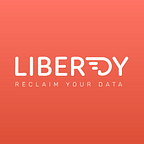Can the Ad-tech Industry Do Well and Do Good?
No one is in any doubt that the $230 billion a year Ad-tech industry is doing well, particularly Google and Facebook. In 2017, this duopoly was responsible for a combined 63.1% of US digital ad investment and they own by far the biggest slice of the global ad pie.
In 2018 the industry is set to be worth a whopping $266 billion per year, unfortunately though, this incredible growth is due in large part to the unrestrained and occasionally, even reckless exploitation of user data by these powerful tech giants. They share and resell user data in a manner that is virtually impossible to control, exposing users’ personal information to advertisers, developers, political parties and hackers. Those smaller advertisers taking far greater care of user data are finding themselves at a competitive disadvantage.
The series of data scandals that have hit Facebook in just the last 3 months highlights the flaws in the system. The social network is not alone but is in the company of big names like Yahoo, Equifax and Uber, who have also recently experienced data breaches impacting millions of users. The problem is however that there is very little incentive for the companies that are making a fortune from user data to change their ways. Data is big business and users are not giving up the internet any time soon. This paints a very grim picture for users, whose privacy is being compromised every time they enter the digital space, to allow a few powerful companies to make billions from their personal information. However, times are changing.
The first indication that the leading tech companies are losing their stranglehold on user data, is the introduction of the EU General Data Protection Regulation (GDPR), which took effect on May 25th, 2018. This law is taking a leap forward in redressing the balance of power. It states that the user is the rightful owner of their data and their consent is required for its use. The GDPR also enshrines the user’s right to receive a digital copy of their data from the companies harvesting their personal information, which they can then share as they see fit.
Another factor impacting the direction of the Ad-tech industry is the development of blockchain technology. It offers the opportunity to create a new digital marketing infrastructure that is characterized by transparency, and open access, creating a level playing field for advertisers, and placing control in the hands of users.
One company has made its mission to leverage the power of both the GDPR and blockchain technology to ensure that the Ad-tech industry doesn’t just generate revenues for leading tech giants, but also makes users and smaller advertisers equal partners in its success. The Liberdy Data Foundation is a non-profit that is presenting a revolutionary alternative that will revitalize the data marketplace and permanently disrupt the existing ad economy. The Foundation embraces users as equal partners in the advertising ecosystem by anonymizing their data, paying them for its use and putting them in control. Meanwhile, advertisers get access to first-hand, verified, permission-based data that wasn’t previously accessible outside the walled gardens of Google and Facebook.
Until now, to gain access to up-to-date, accurate user information, other advertisers have had to submit to the terms set by Google and Facebook, which control the majority of user data. Otherwise, they need to turn to Data Management Platforms, which depend on cookies that can only track the user via a single device, without the ability to monitor the user’s cross -device activity.
Via the Liberdy app, the Data Foundation enables the user to instantly extract the data that they already share with companies like Amazon, Google and Instagram. The user then selects which personal information they wish to share and Liberdy encrypts, segments and depersonalizes it so that it can not be traced back to a specific individual. The advertiser can then buy reliable, time-stamped consent-based data directly from the user. The user gets rewarded financially and the advertiser benefits from access to data from a cross-section of user-validated data sources, including social networks, online retailers and search engines.
Through the use of blockchain technology, Liberdy has been able to create a transparent data marketplace where every transaction is published to the public ledger, accessible to all participants on the network. The decentralization of the network enhances security and ensures user privacy, since no single entity can control the information. Also, the data is distributed across the network, so it is not stored on a single data storage system that could be vulnerable to attack.
Liberdy is changing the game by introducing fairness to the Ad-tech industry for the first time and enabling users to reclaim their data and profit from its use, while allowing all advertisers equal access to accurate, first-hand data. In addition, publishers can generate a fresh source of revenue, monetizing the users who join the platform and benefiting from enriched data. Put simply, everybody benefits.
If we follow the new Ad-tech model put forward by Liberdy, a broken system can be mended, so as to enrich as opposed to exploit. Data growth is estimated at 27% per annum and consent-based data has the potential to add significant value to the industry. So, it looks like doing right by users, and creating a fairer digital economy for all participants, could really pay off.
The Liberdy ICO will be taking place in Q4 2018. Follow us on Telegram to get the latest updates.
